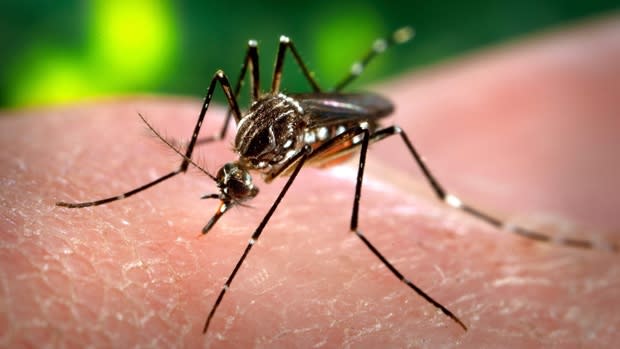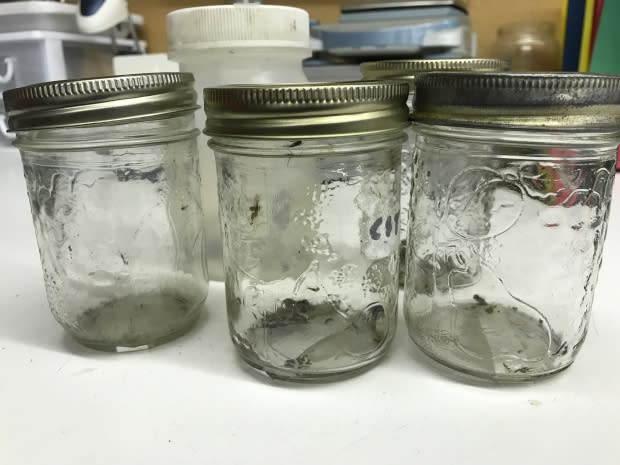Mosquito season is here — and it looks like a bad one
If you've been outdoors recently and seem to be swatting mosquitoes more than usual, you're not alone. All the rain this spring has helped to get mosquito season off to a bad start.
Wet weather brings more of the pesky insects — and their bites.
David Beresford, a professor at Trent University in Peterborough, Ont., says a higher number of mosquitoes are out in abundance. Part of it has to do with winter conditions staying around longer than usual.
"There's lots of moisture, so lots of water on the ground, so numbers are high," he said.

Last year, a number of regions across Ontario reported hot, drought-like conditions through the summer, including Windsor, Hamilton and Ottawa.
"When the snow melted the last few years, the ground was frozen," said Beresford. "The melt water ran off into the canals and rivers. So there wasn't as much standing water on the ground for mosquitoes. We got off pretty lucky actually."
But this year is different. In southern Ontario, consistent rainfall has been making its presence felt in some parts of the region, exceeding average precipitation levels at times.
"I think what's making this worse is we're comparing it to the last three or four years ... which were a lot more dry," said Beresford.
It's no secret that mosquitoes love standing water and downspouts. Either of those make for a "good mosquito habitat" according to Beresford.
He adds shaded areas can be free of mosquitoes, but tree holes can attract them just as quickly.

"There's really no predators that can attack their larvae so there's mosquitoes in tree holes as well."
If you're out in nature, don't hesitate to use DEET-based products. There's no need to slather a lot of it on yourself. The equivalent of a perfume spray will do. Take it from Beresford — who has let mosquitoes bite him on purpose.
"In order to catch them, so I don't damage their wings or damage their scales, I let them land on me and bite me and then I put them in a little vial, so I have those." he said.
"To get them to species level, especially when I'm doing some work up north, I would need to be able to identify the species. If you net them, you run the risk of breaking their wings and then braiding the scales off them."
If dragonflies make their presence felt in a specific area, that can be a telltale sign that the mosquitoes are being taken care of.
"They just go through like spitfires in the air, pulling those mosquitoes out," Beresford said. "They're absolutely incredible. Beside my house, there's clouds of dragonflies, so that tells you how many mosquitoes there are."

So just how long will people need to continue swatting mosquitoes away? Beresford says that will ultimately come down to whether it rains or not.
"If it rains, we're going to continue to have mosquitoes. If we get that drought period in the middle of July into August, the numbers will drop off," he said.
"But of course, they'll be back in the fall if we have a rainy summer. We're going to just have high mosquitoes all summer long."

